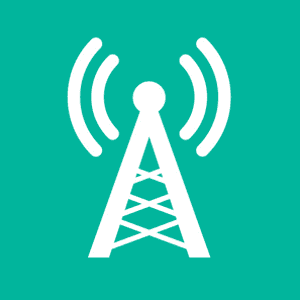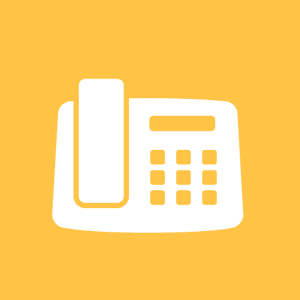Business Phone Service in District of Columbia
If you own a business in District of Columbia, then you need business-grade phone service. Today, the phone is still the primary form of communication, and it's used by consumers to get in touch with your business. Since the phone is still the primary form of communication, it's very important to choose the right business phone service for your needs. An ideal service should be reliable, affordable and diverse. It should deliver all of the features needed to efficiently run a business. Before choosing a service, it's important to consider the different service providers and what they have to offer. The two main types of business phone services are analog and VoIP. To choose the right service, you must understand how these options work, and once you understand the basics, it will become much easier to compare business phone service providers in District of Columbia.
| Provider | Plan Details | Monthly Rate* | |
|---|---|---|---|

|
RATED #1 BY INDUSTRY EXPERTS
|
$19.99
|
Details

142 Reviews |

|
Alliance Phone Service
* 12% discount for subscribing and paying for a year upfront |
$19.97*
|
Details

13 Reviews |
_4.png&contenttype=png)
|
The phone system built to do business anywhere
* $5 per additional user |
$19.00*
|
Details

1 Reviews |
_2.png&contenttype=png)
|
Get 99.99% network reliability with Fios.
* Per month. Plus taxes, fees and equipment charges. |
$69.00*
|
Details

11 Reviews |

How Does Business VoIP Service Work in District of Columbia?
VoIP is commonly used in favor of an analog phone service, and it stands for voice over Internet protocol. The technology for VoIP has been around for many years, but recently, it has become much more popular. After switching to VoIP, many business owners are ditching their traditional PSTN service. VoIP is a popular choice among small startups because it's affordable and satisfies the needs of most smaller businesses. The call quality available from VoIP is almost identical to analog phone service, but in most cases, it's much less expensive. When a call is made with a VoIP service, the call is sent through the Internet, and on the other end of the transmission, the call is reassembled from its digitized form, and the person on the other end can clearly understand the voice. However, before considering a VoIP business phone service, it's very important to have a high-speed Internet connection. MyRatePlan takes the guesswork out of checking the speed of an Internet connection, and it offers one of the best tools available for Internet speed testing.
Although VoIP and analog phone services deliver similar call quality, they function differently. The major difference between these two services is how the calls are transmitted. When a call is made with a PSTN service, it's transmitted through analog telephone lines. VoIP is different because it digitizes calls and passes them through the Internet. Most businesses in District of Columbia can save money by using a VoIP service because it's much cheaper to send and receive calls. A VoIP service also charges less money for international and long-distance calls, which can be quite expensive when made with an analog phone service. Some of the best VoIP services charge a flat rate for their services, which creates another opportunity to save money.
By getting business VoIP service in District of Columbia, business owners can get access to many useful features. Several of the top features offered by VoIP services are call forwarding, fax to email, caller ID and multiple extensions.
Most of the VoIP business phone providers in District of Columbia offer great features for businesses, and the size of the business doesn't matter. Some of the smallest companies start out with VoIP and don't need more than five lines, and many larger companies require hundreds of extensions and use VoIP.

Picking The Best Phone Service for Your District of Columbia Business
Due to the rising popularity of commercial VoIP, you will find there are a lot of providers eager to nab your business. Even though this could complicate the selection process, it can also be a useful advantage.
To begin, give some thought to your company's communication needs. Try to determine things like which functions you'll need to use during the day, how many extensions you'll need to buy, whether you have plans to develop your organization further in the foreseeable future, and what your phone budget looks like.
Then you'll be prepared to check on the plans available from the myriad of company VoIP providers in District of Columbia. Take note of the packages they have available, their costs, and also the all-around trustworthiness of the provider. Using a functional phone service is an indispensable component in your business's success, so it's important to choose a provider with a favorable reputation for stability and fine customer support.

Traditional Phone Service
Traditional phones carry out the audio connection over the PSTN or public switched telephone network. The PSTN system uses a combination of cables, satellites, mobile networks and other technology - old and new - to deliver exceptional quality of calls nationwide, and has been in use for nearly a hundred years!
Using a plain old telephone service provider in District of Columbia, is more expensive than VoIP as the network is large and old, and requires regular and constant maintenance to be effective. What's more is that it has a tougher time sending your audio data over large distances - and even much more difficulty when connecting international calls.
While more and more of the PSTN system is being digitized, there is still always the last bit of a connection between a local office and the receiving phone number that's owned and operated by a company who can charge what they want for connecting your call. What's more is that as your calls extend geographically to longer and longer distances, there are more ‘pit stops' where the call is connected and patched through to achieve longer distances - each of which can significantly increase the cost of the call.

Analog Phone System Use With a PBX
A private branch exchange or PBX, is what most District of Columbia businesses use to route calls inside their own offices. The PBX permits multiple extensions, voicemail, call forwarding and other important features. On a PSTN, the user's premises or an off-site location can house the PBX. A PBX costs a lot of money to run, regardless of the location.
This is due to required hardware costs, an investment of at least $1000. The equipment then has to be installed, configured and maintained on a regular basis. These, of course, cost money in addition to the initial purchase price. You have the option to get your in-staff employees to be responsible for the equipment or hire a professional. Professionals are known to charge $100 per hour or more.
Any kind of updates or maintenance on a traditional PBX system in District of Columbia is going to be very expensive. Be advised that such a system may not be adequate for all your needs, as it only supports a limited number of phone lines. You will need to spend extra money if you need to add more extensions in the future as your business grows.
From time to time, a PBX system will breakdown, just like any other network made from electrical components. In order to repair the hardware, you'll need to be prepared to pay high fees and may even need to buy new hardware to replace it. This could present a potential financial obstacle for start-ups or slow-growing businesses.
Find Business Phone Service Providers in
Find Other Services in District of Columbia
- Cell Phone Service in District of Columbia
- Business Internet Providers in District of Columbia
- Internet & TV Service Providers in District of Columbia
- Car Insurance Quotes in District of Columbia
- Home Phone Service in District of Columbia
- Mortgage Rates in District of Columbia
- Health Insurance Quotes in District of Columbia


 Menu
Menu